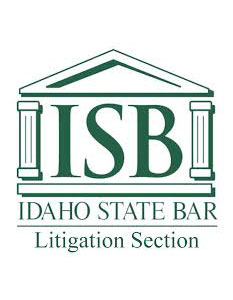Truck accidents involving government vehicles present unique challenges that differ from typical truck accident cases. When a government-owned vehicle is involved in an accident, the legal process for filing a claim becomes more complicated due to the rules and procedures governing claims against public entities. Victims of these accidents need to understand the intricacies of pursuing compensation, as the government enjoys certain protections that limit liability in many instances. However, that does not mean a victim is left without recourse. Understanding the legal framework surrounding these claims is crucial for those seeking justice and fair compensation after such an event.
In Idaho, like in many other states, when an accident involves a truck owned or operated by a government agency, different rules apply compared to accidents involving privately owned trucks. This is because the government, including local, state, and federal entities, is typically afforded immunity from lawsuits under the doctrine of sovereign immunity. This doctrine can significantly limit the ability to sue the government. However, many governments, including the federal government, have waived certain aspects of this immunity through laws like the Federal Tort Claims Act and Idaho’s Tort Claims Act, allowing individuals to bring claims in specific circumstances. Still, the process for doing so is not the same as for private accidents, and adhering to specific deadlines and requirements is vital to the success of any claim.
Understanding Sovereign Immunity and Waivers
Sovereign immunity is a legal doctrine that protects government entities from being sued unless they consent to it. Historically, this principle prevented citizens from filing claims against their government for any harm caused by government actions or negligence. In modern times, however, many governments have created exceptions to sovereign immunity, recognizing that individuals deserve the right to seek compensation for damages caused by the negligence of public entities. These exceptions are often laid out in tort claims acts at both the state and federal levels.
In the context of truck accidents, if a government vehicle is involved, sovereign immunity may still shield the government from some types of claims. However, under Idaho’s Tort Claims Act, certain protections are lifted, allowing victims to pursue compensation for injuries or property damage caused by government employees while performing their official duties. It is essential to understand that even with these waivers, the rules for filing claims against government entities are much stricter and more time-sensitive than claims against private individuals or companies.
Filing a Claim Against the Government
One of the most critical aspects of truck accident claims involving government vehicles is understanding the specific procedural requirements involved. When filing a claim against the government, victims must follow a different process than when dealing with a private party. The timeline for bringing a claim is often shorter, and missing key deadlines can result in the dismissal of the claim, leaving the victim without compensation.
In Idaho, for example, under the Tort Claims Act, anyone seeking to file a claim against the government must submit a notice of claim within 180 days of the accident. This notice must include detailed information about the incident, such as the date, time, and location of the accident, the nature of the injuries, the identity of the responsible government entity, and the amount of compensation being sought. Failure to submit this notice within the prescribed timeframe can prevent the injured party from pursuing any legal action. Additionally, unlike claims involving private parties, the government is granted more leeway to investigate the claim, which can result in a lengthier process for obtaining compensation.
If the claim is not settled during the administrative process, the victim may be allowed to file a lawsuit against the government. However, the rules governing these lawsuits are different from those involving private entities. For instance, some courts may impose caps on damages in government cases, limiting the amount of compensation a victim can receive. These complexities make it essential to approach these claims with a clear understanding of the legal landscape.
Determining Liability in Government Vehicle Truck Accidents
Establishing liability is a critical element in any truck accident case, and this is especially true for cases involving government vehicles. One of the first steps in pursuing a claim is determining who is responsible for the accident. In accidents involving government trucks, the driver may be held liable if they acted negligently, but liability can also extend to the government agency that owns the vehicle or oversees the driver’s actions.
Government employees are often covered under the principle of vicarious liability, meaning that their employers, in this case, government agencies, can be held responsible for the actions of their employees while they are performing their job duties. However, if the government employee was acting outside the scope of their employment at the time of the accident, they may be personally liable rather than the government. Determining the scope of employment can be a complex process, particularly when it comes to public servants like police officers, firetruck drivers, or sanitation workers.
In some cases, the government may argue that the driver was engaged in an emergency response at the time of the accident, which could further limit the government’s liability. Idaho’s Tort Claims Act, for example, includes certain exceptions for emergency situations where government vehicles are involved. This can make it more challenging for victims to prove negligence, especially if the government agency claims the driver was performing official duties in an emergency. Understanding the nuances of this area of law is critical for navigating these types of claims successfully.
Rules of a Personal Injury Claim Choosing a Personal Injury AttorneyRelated Videos
Types of Damages Available
In any truck accident case, the damages a victim can recover will depend on the severity of their injuries, the extent of property damage, and the impact on their life. For accidents involving government vehicles, the potential compensation can include economic and non-economic damages, although caps on damages may apply.
Economic damages typically include costs like medical expenses, lost wages, and property damage. These damages are usually easier to quantify, as they involve actual costs incurred by the victim as a result of the accident. Medical expenses can encompass everything from hospital bills to ongoing rehabilitation and long-term care, depending on the nature of the injuries sustained. Lost wages can also be a significant factor, especially if the victim is unable to return to work for an extended period.
Non-economic damages, on the other hand, are more subjective and can include compensation for pain and suffering, emotional distress, and loss of enjoyment of life. In cases involving government vehicles, however, some states, including Idaho, may impose caps on these types of damages, limiting the amount a victim can recover. Understanding the potential compensation available and the limitations imposed by law is an important part of evaluating the merits of a truck accident claim involving a government vehicle.
Challenges in Government Vehicle Truck Accident Claims
One of the most significant challenges in truck accident claims involving government vehicles is navigating the complex legal framework that governs these cases. From shortened deadlines to unique procedural requirements, pursuing a claim against a government entity requires careful attention to detail and a thorough understanding of the applicable laws.
Verdicts & Settlements
Another challenge comes from the government’s ability to assert certain defenses that are not available to private parties. For instance, the government may argue that the driver was engaged in an official emergency response at the time of the accident, which could shield them from liability. Additionally, even when the government is found liable, damage caps may limit the amount of compensation available to victims. This makes it even more critical for those involved in these types of accidents to approach their claims with the right legal guidance and support.
Another layer of complexity arises from the fact that government vehicles, such as those operated by the military, police, or fire departments, may be subject to federal regulations in addition to state laws. This can further complicate the claims process, as victims may need to navigate multiple layers of government bureaucracy to obtain the compensation they deserve. Truck accidents are already complex cases, and adding the involvement of a government vehicle only heightens the need for meticulous legal action.
Legal Help for Truck Accident Claims Involving Government Vehicles
If you have been injured in a truck accident involving a government vehicle, understanding your rights and options is crucial. Given the complexities and unique challenges of these cases, having experienced legal counsel can make a significant difference in the outcome of your claim. Pursuing compensation in such cases involves navigating a different legal process than in typical truck accidents, and there are strict timelines and procedural requirements that must be met.
Hepworth Holzer, LLP is here to help guide you through this complex process. Our team is committed to ensuring that victims of government vehicle truck accidents receive the compensation they deserve. We understand the unique challenges of these cases and have the knowledge necessary to help you navigate the legal system. If you have been involved in such an accident and need legal assistance, contact us today to schedule a consultation and learn more about how we can help you protect your rights and pursue justice.










